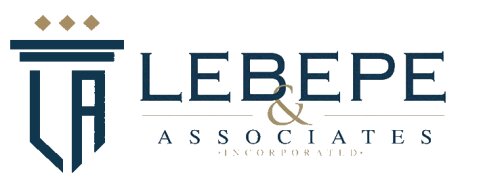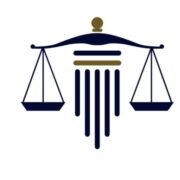Best Faith-Based Law Lawyers in Polokwane
Share your needs with us, get contacted by law firms.
Free. Takes 2 min.
List of the best lawyers in Polokwane, South Africa
About Faith-Based Law in Polokwane, South Africa
In Polokwane, South Africa, faith-based law refers to the intersection of religious doctrines and the legal system. While South Africa's legal system is primarily based on secular laws, faith-based principles often influence legal matters, especially in personal status issues like marriage, divorce, and inheritance. Many communities in Polokwane adhere to various religious practices, leading to the usage of religious laws alongside national laws. This dual legal presence requires careful navigation to ensure compliance with both religious obligations and state laws.
Why You May Need a Lawyer
Faith-based law can be complex, especially when it intersects with secular regulations. Common situations where you may require legal assistance include:
- Disputes regarding religious marriages and divorces.
- Inheritance issues governed by religious principles conflicting with state laws.
- Conflicts between religious obligations and employment laws.
- Adoption and child custody matters based on religious backgrounds.
- Compliance with religious regulations for businesses and non-profit organizations.
- Legal advice for religious institutions regarding property and administrative issues.
Local Laws Overview
In South Africa, the legal system is primarily secular; however, religious laws are recognized under certain circumstances. Key aspects relevant to faith-based law in Polokwane include:
- Marriage and Divorce: While civil marriages are regulated by the Marriage Act, religious marriages may require compliance with religious laws and might need legal recognition to be deemed valid under national law.
- Inheritance: The application of religious law principles is common, but they must align with the Constitution, which prohibits discrimination, including on the basis of gender or religion.
- Education: Religious educational institutions must adhere to both educational guidelines and religious teachings, requiring careful coordination.
- Religious Freedoms: South Africa's constitution guarantees religious freedoms, affecting how laws regarding religious expression and practices are enforced.
Frequently Asked Questions
What is the role of faith-based law in marriage and divorce in Polokwane?
Faith-based law can govern marriage and divorce within religious communities. Legal recognition of these marriages requires compliance with relevant national laws, and a lawyer can assist in ensuring dual compliance.
Can faith-based law affect child custody decisions?
Yes, religious considerations can influence child custody matters, especially within religious communities. However, any custody decision must prioritize the child's best interests according to South African law.
How does faith-based law impact inheritance disputes?
Faith-based principles often guide inheritance disputes within religious communities. It's crucial to align these practices with national law, which emphasizes equality and non-discrimination.
Are religious marriages legally recognized in South Africa?
Religious marriages can be recognized legally if they comply with the Marriage Act. Consulting a lawyer can help in navigating the registration process and ensuring the marriage is acknowledged by the state.
How do faith-based laws influence employment?
Employment practices that are based on religious principles must align with national employment laws. Legal advice can assist in navigating conflicts between faith-based policies and labor laws.
What support is available for religious organizations seeking legal guidance?
Religious organizations can seek assistance from legal professionals who specialize in faith-based law to ensure compliance with administrative and property laws while respecting religious doctrines.
How are religious disputes often resolved in Polokwane?
Disputes may be resolved through religious councils or mediation within the community, but they must also adhere to national legal standards. Legal representation can help bridge these processes.
Can faith-based law influence educational institutions in Polokwane?
Yes, religious educational institutions must balance religious teachings with educational standards. Legal advice can help manage compliance with both sets of guidelines.
Is it possible to have a legally binding contract based on religious laws?
While contracts can be influenced by religious principles, they must meet the legal requirements set by South African law to be enforceable.
How is religious freedom protected under South African law?
Religious freedom is constitutionally protected, allowing individuals and communities to observe their faith. However, this must be balanced with other constitutional rights and laws.
Additional Resources
For further assistance, consider reaching out to:
- The South African Law Reform Commission for guidance on legal standards.
- Local religious councils or organizations for advice on religious laws.
- Legal aid clinics in Polokwane for services related to faith-based legal issues.
- Office of the Family Advocate for matters concerning family law and religious considerations.
Next Steps
If you require legal assistance in faith-based law, consider the following steps:
- Consult with a lawyer who specializes in faith-based law to understand your rights and obligations.
- Gather all relevant documents and information to facilitate the legal process.
- Determine whether your issue requires mediation or court intervention, and seek guidance accordingly.
- Contact local organizations for support specific to your religious or community needs.
- Review your legal options regularly, especially if there are changes in either religious or national legal frameworks.
Lawzana helps you find the best lawyers and law firms in Polokwane through a curated and pre-screened list of qualified legal professionals. Our platform offers rankings and detailed profiles of attorneys and law firms, allowing you to compare based on practice areas, including Faith-Based Law, experience, and client feedback.
Each profile includes a description of the firm's areas of practice, client reviews, team members and partners, year of establishment, spoken languages, office locations, contact information, social media presence, and any published articles or resources. Most firms on our platform speak English and are experienced in both local and international legal matters.
Get a quote from top-rated law firms in Polokwane, South Africa — quickly, securely, and without unnecessary hassle.
Disclaimer:
The information provided on this page is for general informational purposes only and does not constitute legal advice. While we strive to ensure the accuracy and relevance of the content, legal information may change over time, and interpretations of the law can vary. You should always consult with a qualified legal professional for advice specific to your situation.
We disclaim all liability for actions taken or not taken based on the content of this page. If you believe any information is incorrect or outdated, please contact us, and we will review and update it where appropriate.












